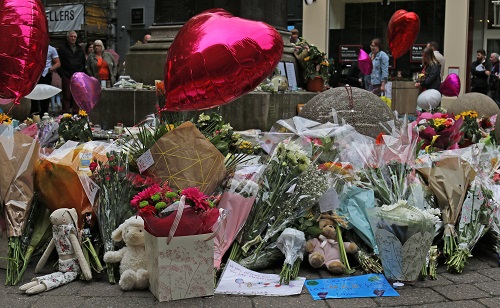Climate talks in Azerbaijan ended with a last-minute finance agreement to provide developing countries with $300 billion a year by 2035, to support efforts to cut emissions and deal with the effects of climate change.
News
COP29 climate summit ends with finance deal but critics say it is inadequate
The figure is three times higher than the previous goal, but it falls far short of the target set by developing countries and has been described by campaigners as “woefully inadequate”.
 Photograph: UN Climate Change/Kiara Worth
Photograph: UN Climate Change/Kiara Worth
After two weeks of tense negotiations in Baku, a deal was reached in the early hours of 24 November on a new collective quantified goal (NCQG), which will see richer countries pay $300 billion annually by 2035 to support poorer nations as they transition to cleaner energy and adapt to climate change.
The agreement also called for “all actors” to work together to scale up finance to developing countries to $1.3 trillion a year by 2035, from both public and private sources.
A report published by the Independent High-Level Group during the first week of the COP29 summit had set a goal to raise $1 trillion a year in external finance by 2030, to help developing countries, excluding China, meet the climate objectives set out in the Paris Agreement.
United Nations climate change executive secretary Simon Stiell acknowledged that the agreement signed by almost 200 countries in the Azerbaijani capital did not meet all parties’ expectations.
“No country got everything they wanted, and we leave Baku with a mountain of work to do,” said Stiell. “We still have a very long road ahead, but here in Baku we took another important step forward.”
Greenpeace described the agreed finance goal as “woefully inadequate” and “way too little, way too late”.
“Developed countries came here with empty pockets and shamefully squeezed developing countries to agree. But this finance goal comes with no assurance that it will not be delivered through loans or private finance rather than the grant-based public finance developing countries desperately need,” said Tracy Carty, a politics expert at Greenpeace International.
“One glimmer of hope is an agreement to develop a roadmap by COP30 for scaling up finance: this must be a roadmap for making polluters pay.”
COP30 will take place in Belem, Brazil in November 2025.
NEWS

One in three teachers nearly always stressed, finds survey
By Belinda Liversedge on 14 April 2025
Teachers in State schools work in a culture which invades every aspect of their life, leaving them stressed and unable to switch off, the head of the National Education Union (NEU) has warned in the wake of a damning new survey.

Venue owners have two years to tighten up safety as Martyn’s Law passes Royal Assent
By Belinda Liversedge on 04 April 2025
Owners of sports grounds, theatres and other venues with a capacity of more than 200 should carry out a terrorism evaluation to understand their duties under a new law given Royal Assent.

Employers urged to get ready for new equality-based rights
By Belinda Liversedge on 03 April 2025
Employers should “start preparing now” for three key measures expected in Employment Rights Bill which will give women enhanced rights in the workplace, said a senior lawyer.



